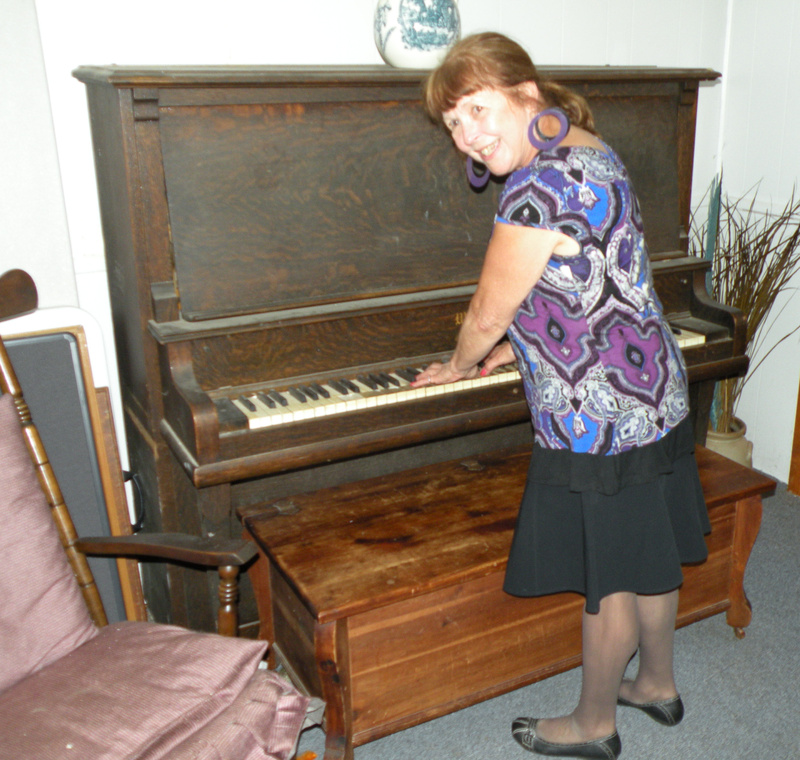Waterville native Marilyn Leonie Lacombe Snipe delights in talking about her Franco-American heritage. Her growing-up stories are entertaining and educational. She recently participated in an oral history project with Lea Esty, a French language student at the University of Maine at Augusta.
“I have all sorts of things to say about my French heritage,” she says.
One of Snipe’s French ancestors who arrived in Quebec in the 18th century was Renee Birettte, who was among Les Filles du Roi (“daughters of the king”). These select mademoiselles were adopted by King Louis XIV of France.
They voluntarily left their families in France to settle in colonial Quebec, where it was anticipated they would marry single soldiers and trappers. The young women could return home if they chose not to marry, says Snipe.
“It was gracious of King Louis XIV to offer them the option not to marry,” she says. Of course, most of Les Filles du Roi married soon after their arrival, which is why Franco-Americans can easily trace their family’s genealogy to one of these pioneering women.
Birette married Pierre Balan dit Lacombe, a widower from Bordeaux, France, who came to Quebec to fight for King Louis XIV.
Snipe learned about her lineage to Birette from a childhood friend she met at St. Francis de Sales elementary school in the early 1950s.
“All the French Catholic kids went to St. Francis de Sales school,” says Snipe. Her third-grade classmate and lifelong friend is Claire Poulin of Auburn. Poulin was researching her family’s genealogy when she discovered the two women were related to Birette.
After 50 years of friendship, Poulin and Snipe realize they are also cousins.
Snipe was born in Waterville in the house her grandmother purchased at 58 Silver St. Her grandmother Angelina Mathieu Lacombe arrived in Waterville by train in the late 1800s from Cookshire, Quebec. She purchased the house soon after arriving.
Because Lacombe was the oldest of 14 children, her younger siblings were drawn to join their sister at her big Waterville house.
Six siblings eventually migrated to Waterville and moved into the house. Each new family carved out a huge private apartment from the space in the Silver Street house.
Snipe beams while telling stories about growing up with her parents, aunts, uncles and grandmother living in one subdivided house. “Everybody was related,” says Snipe.
She recalls huge family Christmas gatherings with the Quebec relatives who visited during the holidays. They all went to midnight Mass at St. Francis de Sales Church, followed by the traditional Reveillons, with tourtiere and buche de Noel. Live music was performed by relatives who played accordions, violins, banjos and spoons. They rolled up the carpets and performed clog dancing on the hardwood floors.
Among the Franco-American artifacts and family heirlooms Snipe owns is an antique piano which once played during the silent movies at Waterville’s Bijou Theater.
The piano reminds her of soirees she enjoyed when the family gathered to informally entertain each other. Snipe wants to eventually donate the piano to a Franco-American museum, if one is ever permanently established in Waterville.
Currently, The Kennebec Valley Franco-American Society supports “Museum in the Streets,” a set of walking tour historic markers with written narrative histories, located along Water Street.
To commemorate their shared heritage, Poulin gave Snipe the gift of a special edition 2007 Christmas ornament dedicated to Les Filles du Roi, purchased from the American-French Genealogical Society.
Check the website www.afgs.org for information.
Juliana L’Heureux can be contacted at:
juliana@mainewriter.com
Send questions/comments to the editors.



Comments are no longer available on this story